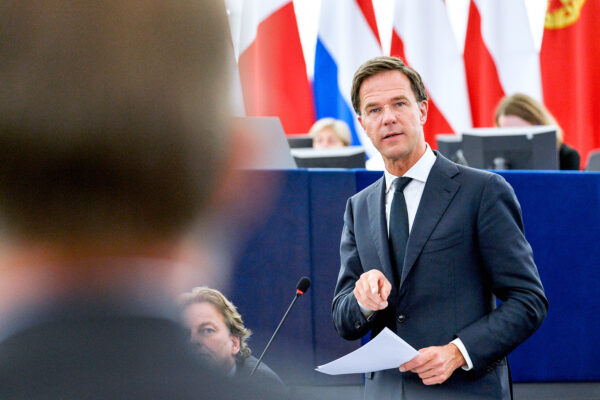
The Dutch government is due to unveil €16 billion in new spending (worth 2 percent of GDP) to help low- and middle-income earners pay record-high energy and grocery bills.
A package of benefits, tax cuts and tax increases Prime Minister Mark Rutte’s four-party coalition agreed was promptly leaked to various media. They will be officially announced in next year’s budget on September 20.
The government already spent €6.5 billion this year to lower energy and fuel taxes, and to give low-income households a bonus of €1,300. Those measures would be repeated.
The Dutch pay the highest electricity and gas prices in Europe, and the highest fuel prices after the Nordic countries and Greece.
With inflation reaching 13.6 percent in August, a postwar record, and the Netherlands’ Central Bureau of Statistics projecting that 1.2 out of 17.7 million people could fall below the poverty line, Rutte’s coalition was under pressure to do more.
The policies leaked on Wednesday should give the lowest incomes between €3,000 and €4,000 in support next year.
Here is an overview, including who’s paying for it.
Spending
- Increase the minimum wage by 10 percent, from €11.26 to €12 per hour.
This automatically raises pensions and welfare benefits as well, which are tied to the minimum wage. Left-wing opposition parties and trade unions had called for an increase to €14.
- Increase child benefits by a total of €750 million.
- Increase health-insurance benefits by over €400 per year.
- Increase rental assistance by around €200 per year.
Child, health and rental benefits are tied to income, and usually phase out over earnings of €32,000.
A single parent living on minimum wage in an expensive rent-controlled apartment currently qualifies for €4,500 in child benefits per year for a child under the age of 12, €1,300 in health-insurance benefits and almost €4,000 in rental benefits.
Two parents with a combined income of €40,000 living in the same apartment but with two children under the age of 12 receive €2,300 in child benefits, no health benefits and €230 in rental assistance.
- Increase student aid.
We don’t know yet by how much. Previous plans were for students living with their parents to receive €91 per month and students living on their own to receive €255.
- Another €1,300 bonus for the lowest-paid.
This year, households with earnings up to 120 percent of welfare (€1,266 per month) qualified.
- Lower income tax on earnings under €69,400.
- Increase the personal allowance, currently €36,650.
- Reduce energy and fuel taxes.
Taxes
€11 billion of the spending would be financed by revenues that are due to increase from higher prices, such as sales tax and the government’s cut on natural gas exports.
- A higher mining tax on oil and gas should raise another €2 billion.
- Corporate tax on earnings up to €200,000 would rise from 15 to 19 percent, raising €1.5 billion.
Rutte’s previous government lowered the rate from 19 to 15 percent and increased the threshold at which the higher, 26-percent corporate tax rate kicks in from €200,000 to €395,000. Those changes would be reversed.
- Reduce the tax deduction for the self-employed, currently €6,300.
- Increase capital gains tax from 31 to 34 percent.
These changes should raise €270 million.
